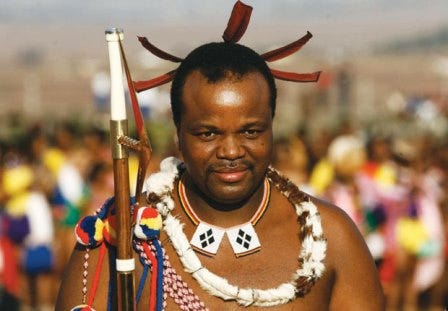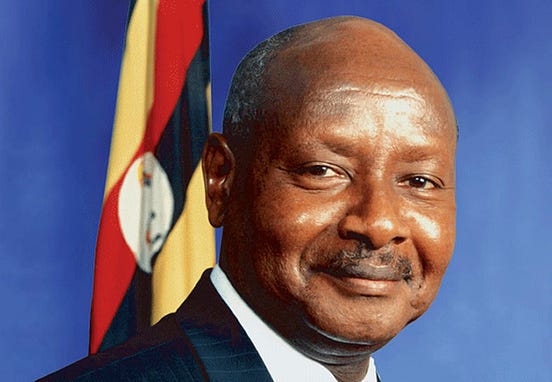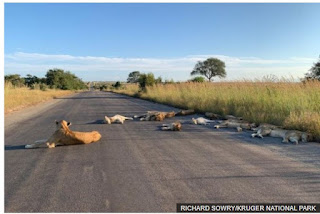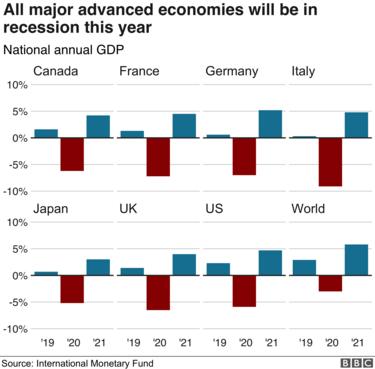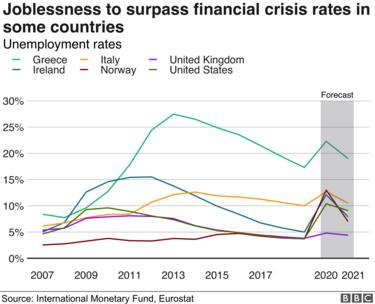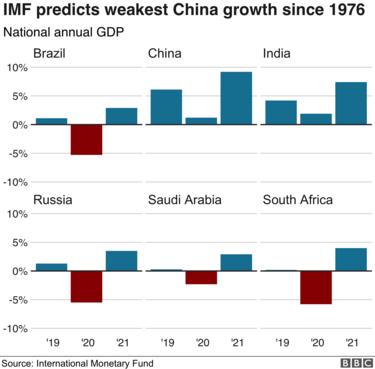here are the seven worst African leaders of 2019.
1. Teodoro Obiang, President of Equatorial Guinea 🇬🇶.
Teodoro Obiang is Africa’s longest-serving leader. He has been President for one of West Africa’s tiny, oil-rich nation since 1979. He came to power by overthrowing his uncle, Francisco Macías Nguema, in a bloody coup d’état. Since then, Obiang has declared himself King of this tiny, oil-wealthy nation, and by recently appointing his beloved son as a Vice President.
Why is that, especially when the country is rich with natural resources?Equatorial Guinea has one of the largest per capita revenues in the world, but this doesn’t translate into prosperity for its citizens. Why? Obiang and his family are mismanaging the country’s assets, while the poor people suffer. The country is ranked very poorly in the United Nations human development index. Under Obiang’s leadership, the vast majority of Equatorial Guineans rarely have access to fresh drinking water, electricity in some parts of the country, jobs, health care, etc. Meanwhile, the Vice President, who happens to be the first son of the president, spends millions of dollars on lavish lifestyles and has no conscience for his fellow Equatorial Guineans.2. King Mswati III, King of eSwatini 🇸🇿.Africa’s last supreme monarch rules over a nation (kingdom) which has one of the world’s highest HIV rates with over thirty-five percent of adults. In eSwatini, the average life expectancy is the lowest in the world at 33 years. Seventy percent of people live on less than $1 a day, and 40 percent are jobless.
Of all the suffering the people of eSwatini bear, King Mswati has hardly shown concern or interest in solving their problems. Instead, he lives extravagantly, using his kingdom’s assets to finance his costly affections for German cars, first-class leisure excursions around the world and his constant taste for beautiful younger women.
Past mismanagement of the country’s money has resulted in a severe economic crisis. eSwatini is on the brink of collapse, and grants have been terminated. Awhile back, King Mswati begged neighboring South Africa for a fiscal bailout. The king’s reckless behaviors show us precisely what happened when there is a greedy and selfish person in a position of power.
3. Omar Al-Bashir, ex-leader of North Sudan 🇸🇸.
Thirty-years ago (1989), Al-Bashir came to power through a bloodless military takeover against the administration of Prime Minister Sadiq al-Mahdi- a democratically chosen leader by the citizens of Sudan. Soon after grabbing power, Al-Bashir disbanded all political factions in his nation, dismissed the country’s parliament and closed all privately-owned media outlets.
His rule has been marked by civil conflicts in which 300,000 to one million people have been murdered, while roughly around 3 million of his citizens have been relocated. His human rights record is one of a century. He is a madman. His crimes range from stealing the country’s oil money (stashing away $9 billion into his secret bank accounts in the UK), rape, genocide, war crimes, and crimes against humanity. Bashir is the only recent ex-African President with an arrest warrant from the ICC.
After massive protests from (“had enough citizens”) Sudanese activists, and uprisings, in April of 2019, Bashir was ousted from office with the help of the Sudanese Armed Forces who did so just to hold on to power. As of now, Bashir has been placed under house confinement pending the establishment of a transitional council.
4. Paul Biya, President of Cameroon 🇨🇲.
Cameroon has one of the highest literacy rates on the continent, but its economic growth has been hindered by corruption and decades of dictatorial rule. Given these facts, today, under President Biya, Cameroon is a country known for its instability, sustained violence, and severe human rights violations. President Biya, 85 years old, won another term as of October 7 of last year. Mr. Biya has been in power for thirty-six years. Imagine that?!
In the past, Biya’s rule has had some success. But now the country is plagued with hostility. In the South West and North West, government defense forces have perpetrated extrajudicial killings, burned properties, carried out random arrests, and abused detainees. In his 36 year rule, human rights activists, reporters, lawyers, and teachers have been intimidated, attacked and tormented.
5. Yoweri Museveni, President of Uganda 🇺🇬.
Yoweri Museveni was involved in the resistance that overthrew infamous Ugandan dictator Idi Amin (1971–79) and Milton Obote (1980–85) before seizing power in the 80s. Museveni has been in power since 1986 (33 years). Under him, the country has not seen steady growth. There have been rampant violations of freedom of association, assembly, and expression. Museveni harshly repressed opposition in removing “presidential age” from the Ugandan constitution to allow him to run again in 2021.
In the past 33 years, Museveni’s security forces have detained and suppressed opposition party and journalists. The Ugandan police blocked opposition on every front. His government used tactics to ban them from access to social media and the right to public gatherings. Under Museveni’s watch, there have been deadly ethnic clashes and retributions in the Rwenzori region of western Uganda. He signed the Anti-Homosexuality Bill into law on February 24, 2014.
This law institutes the penalty of life in prison for gay acts. It criminalized the undefined “promotion” of homosexuality in the country. And if anyone was said to be “gay,” without a proper investigation, they would face the full weight of the law. Since the bill enacted in December 2013, at least seventeen people have been imprisoned based on charges of consensual same-sex conduct with other adults or, in some instances, solely on suspicion of appearing to be gay.
6. Robert Mugabe, ex-President of Zimbabwe 🇿🇼.
Mugabe is one of Africa’s most educated leaders. He attended the same university in S.A. as Madiba. As a young man, Mugabe was heavily inspired by Gandhi and Nehru. Due to his resistance against “injustices” done by the colonizers that plagued his land, he was imprisoned from 1964–1975. After many years of struggle against British rule, Mugabe won a soaring victory in the new country’s election to become prime minister. As prime minister, Mr. Mugabe was unwilling to conform to British rule. After efforts made not to alienate the country’s white masses, he vows reconciliation and unity. But this would just be for a while.
Mugabe is one of Africa’s most educated leaders. He attended the same university in S.A. as Madiba. As a young man, Mugabe was heavily inspired by Gandhi and Nehru. Due to his resistance against “injustices” done by the colonizers that plagued his land, he was imprisoned from 1964–1975. After many years of struggle against British rule, Mugabe won a soaring victory in the new country’s election to become prime minister. As prime minister, Mr. Mugabe was unwilling to conform to British rule. After efforts made not to alienate the country’s white masses, he vows reconciliation and unity. But this would just be for a while.
Mugabe was to rule Zimbabwe with Mr. Nkomo, but within the next few years, he banished him from his cabinet. This was a prelude to more disorder. Between 1983 and 1985, Mr. Mugabe sent an armed force in the country’s western region, where much of Mr. Nkomo’s support resided, to hunt down protesters. Ten thousand were killed, the broad majority of them civilians.
After a change in the country’s constitution, he became president in 1988, a much more dominant position than a prime minister. For the next 12 years he went unchallenged. He instituted plans in government that led to improvements in education and health. Under his rule, over 90% of his people were educated, and the country had one of the highest literacy rates in Sub-Saharan Africa. The nation did prosper for a while.
In the 1990s things began to decline slowly. In the early 2000's, coming to terms with the newly empowered political adversaries, Mr. Mugabe sponsored gangs of young men who had started to grab white-owned farms. Soon afterward, he announced that the state could grab any land from its white owners without paying them for it. So, the war begins against White farm owners, and the country’s agricultural sector went into food curtailments fueled by this disruption.
His shortcomings overshadowed his accomplishments. As President of Zimbabwe, he failed to deal with the ever-present dilemma of employment. The country’s high literacy rate does not inevitably render into employment opportunities for its people. Under him, before, and after, Zimbabwe’s unemployment rate is still one of the highest in sub-Saharan Africa: it is greater than 60%. Mugabe’s breaks the record as one of the longest-serving heads of an anticolonialist movement that became a dictator.
As President, he clung to power by any means necessary. He went as far as flogging and assassinating opposition supporters. And when he lost past elections, he ordered his rival to withdraw from the race, even after he had massively won all of the votes. On November 19, 2017, Mugabe’s 37 year rule came to an unexpected end. The ZANU-PF ousted Mugabe as party head, succeeding him with Mnangagwa, and declared for his resignation or face impeachment. Mugabe did not comply. A couple of days later, a joint session of Parliament and Senate was held and Mugabe was finally impeached.
Unlike Presidents before him, and presidents all over the continent, George Weah is a self-made millionaire and didn’t come to power through a coup but was democratically elected. In all truths, he has no history of violence or oppressing (Liberians) his people. During Liberia’s past civil wars, 1989–2003, he never committed any crime against humanity, but was always on the forefront, for peace, liberty and justice for all.Now, many of you might be saying, “why did George Weah, Africa’s soccer legend ended up on this list?” There are many determinants that contributed to President George Weah being on this list. First and foremost, President Weah is not, as compared to most of the men listed above, but pretty soon he will, or maybe he might take a 360 turn and becomes better in serving his people.
In 2005, when he lost to ex-President Sirleaf in democratic elections, he became an opposition. During his years as an opposition, his inner circle preached against injustices that they perceived that went on during Sirleaf’s administration. His spokesman Mulubah Morlu questioned Sirleaf’s unjust actions, and at times called her “wicked.” Being that Liberia is one of Africa’s most promising democracy, demonstrations were a given right from the Sirleaf’s administration. They exercised their rights in a non-violent means.
In 2018, President Weah democratically won Liberia’s presidential election by roughly winning around 64% of the votes. During the past presidential elections, he promises quick fixes, unity, transparencies, and a fight against corruption. When he was democratically elected in 2018, everything that he promised on the campaign trail went south. For a quick, the first thing he did was to construct a multi-million dollar complex. As far as transparency, and being honest with his people, he failed to declare his assets, violating the country’s free information act.
In a matter of months, while in office, the idea of “unity,” was just in speeches, perhaps his inaugural speech, but in actions, his inner circle started to divide the country based on party-lines, and tribal affiliations. Most of his ministers preached “divisions,” and anyone who dare criticize the president’s actions were labeled “enemies of the state.” Within a year of his presidency, there has been a sharp decrease in the country’s economy.
On June 7 of 2019, fed up Liberians decided to take to the streets of Monrovia to express their frustrations. Irritated by their frustrations and the concern of safety, while also trying to preserve his legendary soccer icon image, Pres. Weah ordered one of his ministers to shut down country’s internet giving them no access to social media. According to the United Nation, his actions violated “U.N. ARTICLE 1, 19” and article Article 18 of the International Covenant on Civil and Political Rights. Which talks about “freedoms” and “human rights violations.”
Pres. Weah publicly challenged oppositions, “anyone cusses me; they’ll not walk the streets of Monrovia!” In a year of his presidency, he has created a somewhat paranoid state and has tilted the political arena, from a “democracy” to a potential “watch state.”His controversial views at times on progression and the unity of his people give off the opinions of a man with an unpredictable future or a man who doesn’t understand the duties of his job.
Questions and potential answers:
Is president Weah most likely to be like the six men listed above? No. But, is he more likely to become a dictator in the future? Probably so, but there’s a less likely chance for him to. Does he fit the worst African leaders category? Yes, he does.
Reasons:He is weak on corruption.He encourages ethnic divisions by not firing ministers who preaches those divides.He is a hypocrite and does not practice what he preaches.He does not have a clear vision for his people or his country.He has so many blind followers than people in his corners who will tell him what’s right.He is not transparent.He boasts more than he works. This comes from “pride” without “humility.”“Humility is with grace, while pride is ever deceiving. Pride must die in you; for it breeds the hymns of sorrow, and nothing of beauty can live in you.”-Henry Johnson Jr.He still doesn’t understand “leadership role” and “democracy,” but preaches it to look like he’s doing something. Leadership is based on actions not words and divisions. He acts as if he is President of his party, not president of all of the people, including some members of the opposition who hate him.He is a very good man, that is loved by his people, but is surrounded by too many negative people that have never been anything or have had anything in their lives. He is usually surrounded by incompetent advisors.Final Thoughts:
Thanks for reading. Please use these examples of the worst African leaders to do the opposite and put the interest of your people and country first! I would love to hear from you, other examples or questions you might have and want to share. I will be reading them and swiftly responding to you, for I do value my readers.




